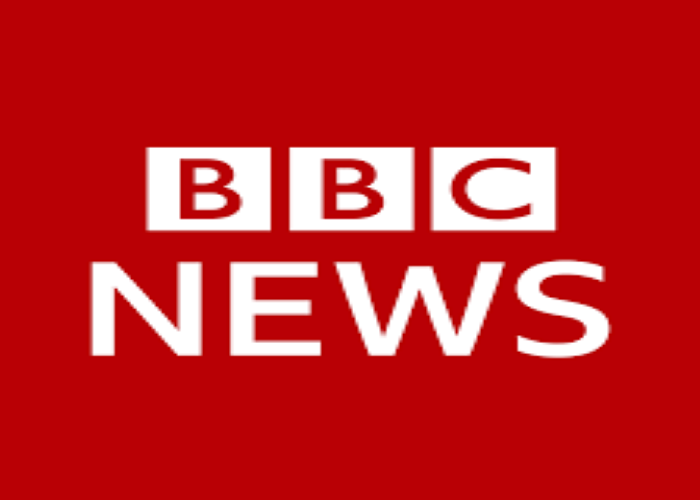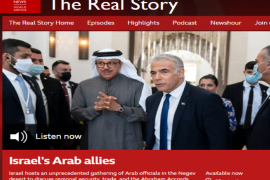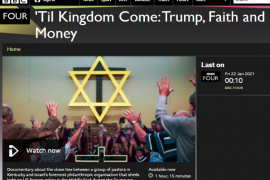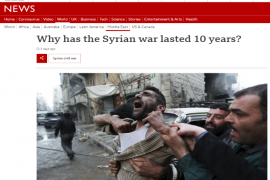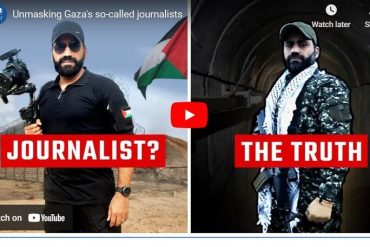Earlier we discussed John Simpson’s October 11th article defending the BBC’s avoidance of the term terrorist:
DOES THE BBC REALLY WANT TO BE KNOWN AS ‘OBJECTIVE’ ABOUT THE MASS SLAUGHTER OF ISRAELIS?
The previous day the BBC News channel aired an 18-minute Q&A backgrounder titled ‘What is happening in Israel and Gaza Strip? And other questions’ which was promoted as follows:
“Here’s what you need to know about the people and places involved – and the essential context to understand this story.”
Asking the questions sent in by viewers was BBC presenter Maryam Moshiri and answering them were the BBC World Service Middle East editor Sebastian Usher and former BBC Jerusalem bureau correspondent Jon Donnison in Jerusalem. Viewers were of course told nothing of Donnison’s dubious record of reporting on past conflicts in 2012 and 2014.
There are plenty of notable points to be made about that October 10th Q&A, including the fact that the only footage shown throughout the entire item was from the Gaza Strip, the promotion of casualty figures supplied by “Gaza’s Health Ministry” without clarification that the source is in fact Hamas and the uncritical amplification of talking points from “the UN Human Rights Chief” without any mention of that organisation’s notorious record on Israel and in general.
Also notable is the misleading portrayal by Usher of “the water situation” and “the electricity situation” in the Gaza Strip as being solely the result of the counter-terrorism measures applied by Egypt and Israel and the false implication by Donnison that Israel’s restrictions on dual-use goods entering the Gaza Strip includes food.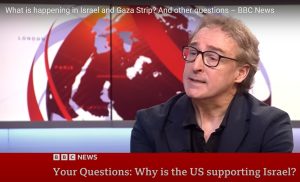
Particularly remarkable is the part of Usher’s response to the question “why is the US supporting Israel?” which invokes the ‘Jewish lobby’ trope and fails to explain how 2.4% of the adult US population has “a big say in elections”.
Usher: “Of course there’s a large Jewish population as well, ah, in the US which has a big say in elections and very few politicians want to say anything that that goes against what they have to say.”
In response to the question “what will it take for Hamas to stop?”, Donnison tells BBC audiences that the reason that efforts to reach a two-state solution have failed is because Hamas has not been included in negotiations:
Donnison: “But Hamas…because so many countries regard Hamas as a terrorist organisation who they’re not prepared to talk to, not part of the discussions, it was always fanciful really to think that there could be a two-state solution until Hamas were part of that deal…”
The programme also includes a section on the topic of the BBC’s refusal to call Hamas terrorists:
Moshiri: “Sebastian, I want to ask you about this – I’ve had a lot of emails about this from people – the terrorist organisation Hamas: why is it that news organisations like the BBC, like ITV, like Sky, like a number of other organisations, do not use the term terrorists when describing Hamas militants?”
Usher: “I think it’s, err…I mean there are a number of reasons. I think one of the reasons is that when you are broadcasting to a world audience…err…you want your perceptions, the way that you are are, are, are, are dealing with the story not to look as if you are taking any particular side and calling a group a terrorist group will always look that way. And people will always be demanding for this cause or that cause that it’s called terrorist or that it is not called terrorist. So I…so I think the BBC feels that the best way that it can maintain a sense of, of, of some form of objectivity, of not looking partial, is to do that. I think it becomes difficult when there are acts… atrocities that are carried out. I mean I think the way that is often found around that by organisations like the BBC is to speak of acts of terror or to have the voices of people who are denouncing it as terrorism but not itself using that term. But yes, it comes under criticism. I’m sure you and I – Jon as well – I mean we have these discussions both professionally but also personally, you know, a great deal of the time. And from the Palestinian perspective, I mean again, many Palestinians just would, I mean, I mean they would feel, I think, if we described Hamas as a terrorist group, they would feel that that was in a sense a kind of total rebuff to them. I mean, they see it as a resistance movement and they would see, I think, it as being like the US; that we’re no longer being even-handed if, if we took that stance.”
As was the case in John Simpson’s article, once again we see BBC staff failing – or refusing – to understand that the term terrorism is not a label of disapproval but a description of methods and actions: a term which describes the use violence as a means, rather than a representation of end aims of which one may or may not approve.
And yet again we see that BBC staff are far more committed to having the BBC appear to be “even-handed” – and not upsetting supporters of the unprecedented vicious slaughter of over 1,300 Israelis – than they are to facts, accuracy and truth.

